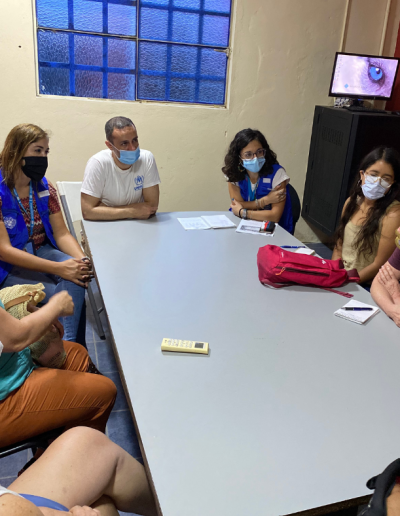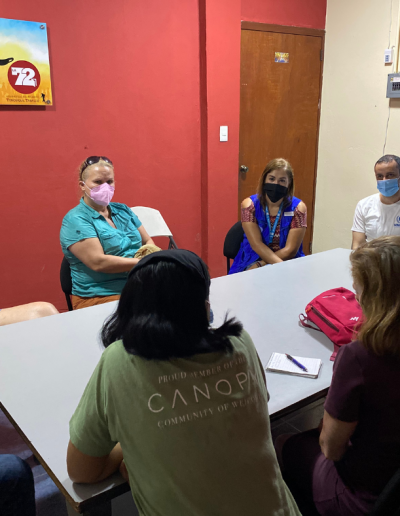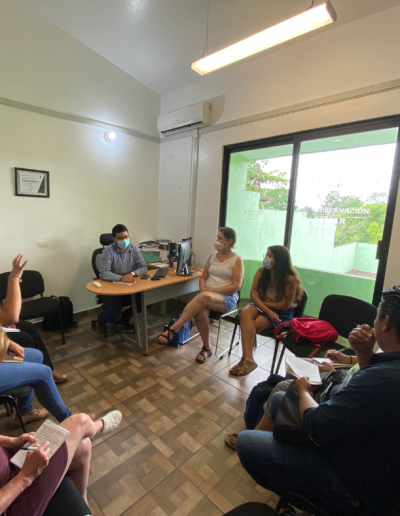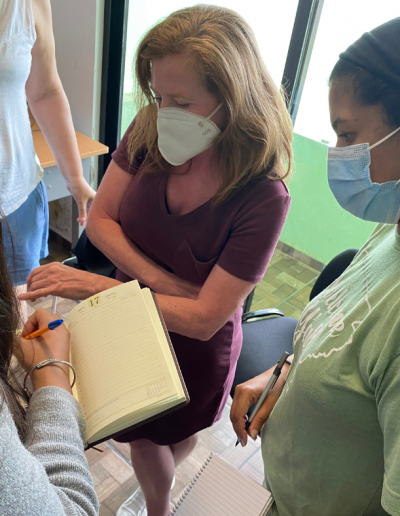June 8
Mexican Commission for Refugee Aid (COMAR)
We visited La 72 in the morning to meet with two Ugandan women. We noticed that the house no longer only receives only migrants from Central America, but also that during this year intercontinental, Haitian and South American migration increased.
Afterwards, we went to the office of the Mexican Commission for Refugee Assistance (COMAR) to meet with person in charge, Jaime Pérez, and with Citlali Bautista and Tila Vargas, members of the Directorate of Attention and Institutional Liaison (DAVI). We learned about the relationship that the institution has with La 72, the only migrant shelter in Tenosique. In the last year, the relationship has improved, this with the help of communication and established agreements, such as “COMAR Fridays,” where COMAR dedicates the day to the people who live in La 72 to start or give continuity to their application procedures. They mentioned that the nationalities that have the most presence in Tabasco are Honduran, Haitian, Venezuelan, Cuban and Salvadoran.
United Nations High Commissioner for Refugees (UNHCR)
The meeting took place at the facilities of La 72. It was a brief meeting in which the organization detailed its work program at the international, national and regional levels; its activities and mechanisms of support to the house and in general to the issue of migration.
La 72, Migrant and Refugee Shelter, Tenosique, Tabasco, Mexico
To end our stay in Tenosique, we gathered at a place on the outskirts of the town with two volunteers from La 72, Natalia and Carolina, who told us about their experience in the house. Natalia is from Colombia and arrived at La 72 in April to volunteer for a short stay, where she lives 24 hours a day, six days a week with users, her activities are dedicated to humanitarian assistance, conducting workshops, supervising of the rules of the house, accompaniments to the hospital, etc. Carolina arrived at La 72 at the beginning of March as a long-term volunteer in the human rights program, for her it has been an enriching experience and one of extensive personal and professional growth. Thanks to her English and French language skills, she is able to communicate with people who do not speak Spanish and supports them in their documentation and preparation for the COMAR interview.
The Franciscan Network for Migrants appreciates the support and constant collaboration of Quixote Center to our organization. This visit was the first and we are in the dialogue to plan more to the southern border of Mexico. We also thank the houses for migrants who received us despite their commitments. We admire the hard work they do every day to seek the defense of the human rights of migrants. It doesn’t matter if we are from different religions or secular, we are always willing to collaborate for our brothers and sisters. We hope to meet again soon!





